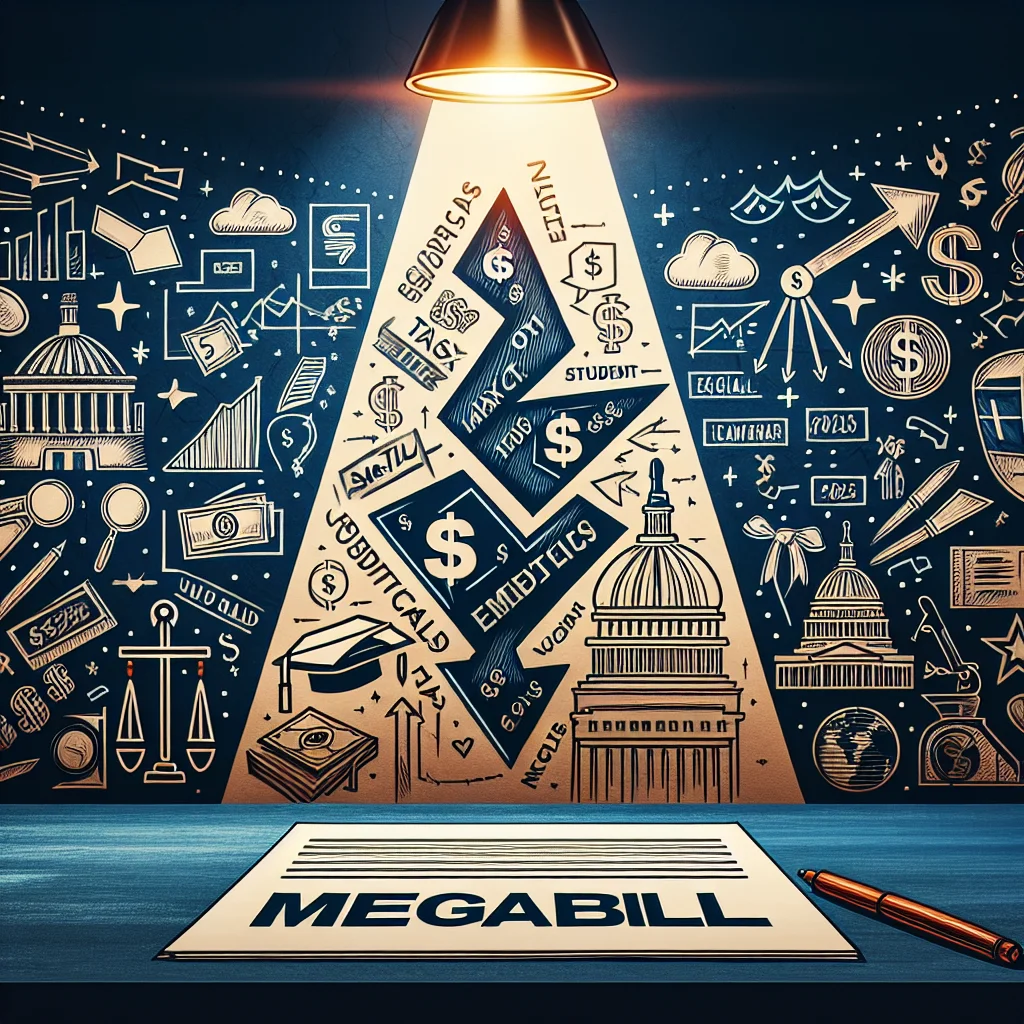
On June 29, 2025, the Senate Republican leadership introduced a sweeping legislative package combining tax reforms, student loan modifications, and Medicaid changes. Titled the Economic Growth and Family Relief Act, the bill consolidates a range of GOP priorities into one of the most consequential proposals of the 118th Congress.
Key Provisions of the Megabill
- Extension of Trump-Era Tax Cuts: The bill seeks to extend individual and small business tax reductions set to expire in 2025. These include lower income tax rates and expanded standard deductions, aiming to provide fiscal relief for middle-income families.
- Student Loan Policy Reforms: The legislation proposes stricter eligibility requirements for federal student loan forgiveness and caps on income-driven repayment plans. It also introduces new incentives for STEM graduates entering the workforce.
- Medicaid Overhaul: The package would allow states greater flexibility in managing Medicaid spending, including work requirements for certain adult beneficiaries and expanded waiver authority to design state-specific health coverage models.
Tax Policy and Economic Implications
With several provisions from the 2017 Tax Cuts and Jobs Act scheduled to expire at the end of 2025, Republicans have prioritized making these cuts permanent. According to the Congressional Budget Office, the proposed extension could cost nearly $3 trillion over the next decade, raising concerns among deficit hawks and Democrats about long-term fiscal sustainability.
Student Loan Changes
The bill reverses several executive actions implemented since 2021, including the pause on student loan payments and expanded forgiveness programs. Borrowers would face new limits on forgiveness eligibility and higher minimum payments, though the bill sets aside grants for technical and STEM education to address workforce shortages.
Medicaid Provisions
States would have increased discretion to implement work and community engagement requirements for Medicaid enrollees, a longstanding GOP objective. The bill also encourages states to adopt value-based care models, with pilot funding for innovative approaches aimed at controlling rising healthcare costs.
Political Outlook
The megabill is expected to face strong opposition from Senate Democrats, who argue it would reduce access to healthcare and make student debt more burdensome for millions of Americans. With the 2026 midterm elections approaching, the legislation is likely to be a central point of debate in Congress and on the campaign trail.
While the bill’s prospects in the narrowly divided Senate remain uncertain, its introduction underscores the GOP’s legislative agenda as Congress enters the second half of 2025.












